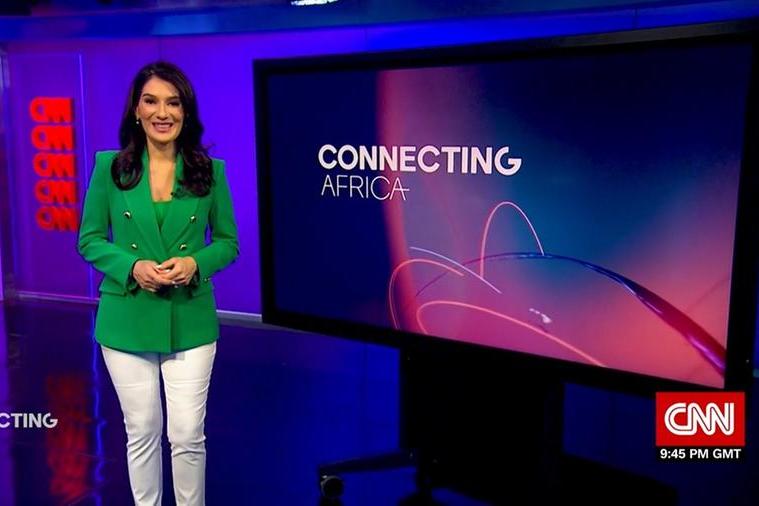
The latest episode of Connecting Africa, CNN International’s Eleni Giokos explores how advances in technology are driving intra-African trade
Financial inclusion – access to services such as bank accounts, credit, savings, loans and insurance remains a major obstacle to economic growth and poverty reduction in Africa but innovative technology is driving change. Fintech (financial technology) is making great strides and Nigeria has become a major hub for the industry.
In Nigeria, designated money agents are commonly seen with point-of-sale systems, enabling millions of people who do not have bank accounts to deposit and withdraw money and perform a range of other financial transactions.
Olu Akanmu, Chairman and Co-CEO of OPay, explains how financial inclusion service providers are reaching the unbanked: “We go where banks can’t. We are much more agile. We are more technology oriented. Therefore, we can deploy more agilely and reach many more areas.”
OPay is among the seven unicorns of Africa – companies valued at $1 billion or more. With five of these unicorns based in Nigeria, the tech sector now represents a large part of the country’s economy. Akanmu discusses the size of the tech industry: “We used to say that oil is perhaps the most impactful sector in terms of the Nigerian economy. But a big story about Nigeria today that we don’t talk about, that we need to echo more of, is that the tech sector today is bigger than oil, twice the size of the oil sector.”
With the implementation of the African Continental Free Trade Area (AfCFTA), better financial, mobile and internet access across the continent will boost business opportunities. Akanmu says the free trade zone should also benefit small businesses, “To ensure that no one is left behind, that the small trader, micro traders are not left behind. This ZLECA does not only serve big companies or big traders in Africa. And to achieve that, that means last-mile players like OPay are going to be very critical. When we do this, we can only end up with a more prosperous Africa.
One of the big backers to the fintech industry on the continent is the International Finance Corporation (IFC), a member of the World Bank Group. IFC Managing Director Makhtar Diop says
“The number of women in startups is much larger than people expected. And you see some very good young entrepreneur ideas. And it’s interesting. You see a mix, people were in Europe or the United States coming back home and growing their business, people who never left Africa growing their business. So I think it will help to develop intra-African trade. But we have to make sure that everything that was signed and said in the Free Trade Agreement with Africa becomes a reality so that people can use that payment to really move goods around easily.”
This month’s program also explores how blockchain is being used to accelerate intra-African trade. Moroccan group OCP is one of Africa’s largest fertilizer producers and has become the first company on the continent to use blockchain to drive trade.
The fertilizer shipping process had been made even more laborious by the Covid-19 pandemic. Khalid Madidi, Risk Manager of the OCP Group, explains that, “Due to COVID, the international courier service has been severely disrupted, leading to longer delays in the transmission of documents to the financing bank. And that means longer funding delays and higher cash opportunity costs for OCP.
Faced with the need to accelerate this process, the OCP Group turned to the use of blockchain technology. Madidi describes what blockchain is and how it works: “In simple terms, blockchain can be described as an electronic ledger, which is distributed over a network of computers. In commerce, blockchain technology has gained popularity because of its ability to track every step of the transaction in real time and, at the same time, provide a single source of truth for multiple parties.Blockchains are very, very secure because they use encryption to protect underlying data. underlying.
Before blockchain, the documents needed to ship fertilizer between Morocco and Ethiopia could involve a thousand documents and take over three weeks to sort through. Using blockchain, this process can be completed in a few hours. Madidi tells Giokos how this process has improved: “You have risk mitigation by eliminating potential errors and ambiguities in the exchange and modification of documents. You have also improved liquidity and working capital financing, reduced transaction costs, improved business developments and supply chain managements, highly secure transaction traceability. And also, it is very convenient, very fast and with high levels of service.
OCP Group says blockchain technology will boost intra-African trade, but only if certain aspects of the AfCFTA are addressed. Madidi explains: “Blockchain technology could have a good impact, a positive impact on intra-African trade, only if some specific intra-African trade challenges are solved, such as tariff barriers, transport infrastructure, trade rules. international trade and business practices. ”
Source : Zawya
